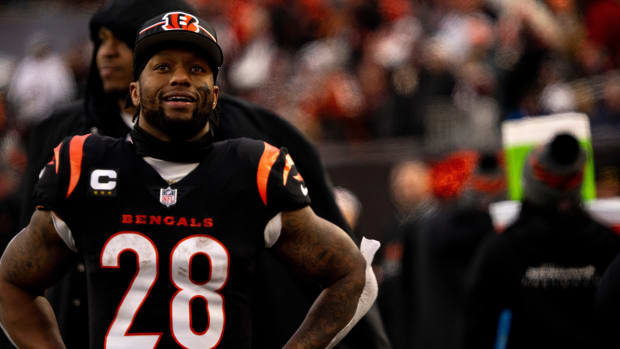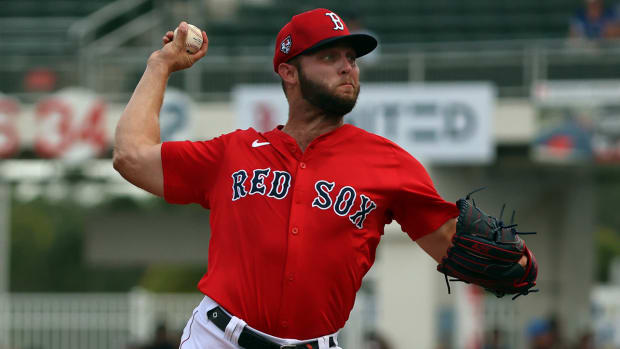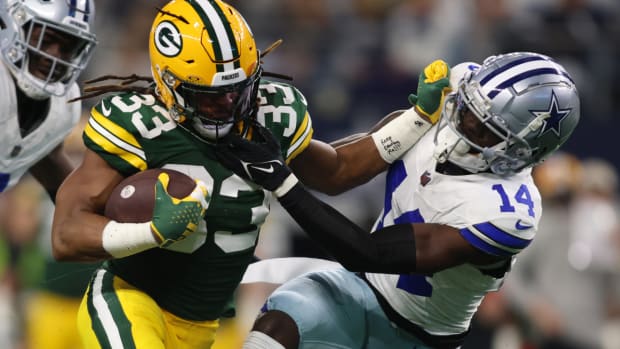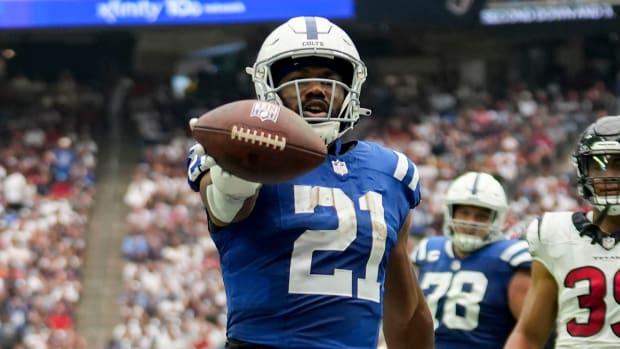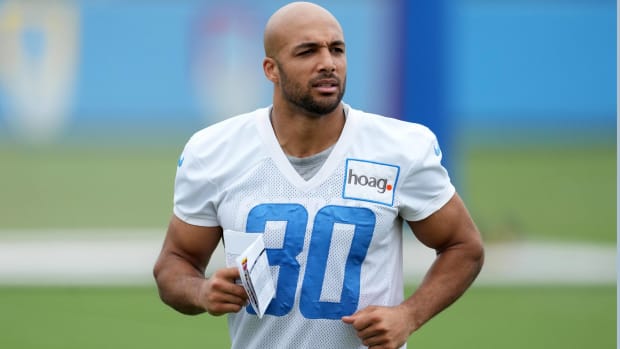
Schedule Management
Answers: I don't, and no.
When I'm drafting my players, the only thing I truly take into account is bye weeks, and that's mostly for quarterbacks. The guys I draft at that position are the ones most likely to keep their jobs, and I want to have a quality backup available the week Peyton Manning has off. In a Mock Draft Central Experts Draft I recently took part in, I picked Peyton in the second round. I wanted Eli Manning when he slipped into the later rounds as a backup, but he and Peyton have the same bye week. So since the Mannings seem to be planning a family outing that week, I took Philip Rivers instead. Yet I didn't even look at Rivers' matchup for that week. I'm not going to look now, either.
Why? Simply because all schedule analysis is based on last season, and even if Rivers has a tough matchup that week, it doesn't mean he is not going to perform well. Good players don't back down when matchups are tough, often saving some of their best performances for divisional games. Plus, by the fourth week of the season, when Manning is off, the defense that Rivers faces could be saddled with some key injuries for all we know. Okay, okay ... I'll look now. The Chargers face the Raiders during Indianapolis' bye week. Yes, Oakland has a good secondary. Sorry, it's a divisional game early in the season. Not worried. There's a lot more to the matchup than what you believe you see at first glance.
I don't know what's a bigger, more overrated axiom than strength of schedule, other than maybe the third-year wide receiver. I don't need a set of heavy statistics to prove the point, either, although that might look nice and a bit more convincing to those who play more than one fantasy sport. This isn't rotisserie baseball. It's not about what the numbers were last year, or even the three-year averages, which are much more applicable in fantasy baseball. I'm more concerned about trying to figure out what will drive the numbers during the upcoming schedule.
If I want to take Larry Fitzgerald, you think I'm going to care who he faces in any given week? I'm drafting Fitzgerald because he can produce against all comers, because he has the ability to stack up stats even against the best defenses he faces. That's why I'm spending an early pick on him. Facing a good defense is far from a guarantee that a guy won't produce against them. In fact, knowing he will face a top-flight cornerback, Fitzgerald may actually raise his game in that given week. Defensive backs get burned; its part of the job. Don't give me any of Fitzgerald's down performances from last year as a rebuttal. New year, every week brings a completely new outlook.
Sure, during the season, just like you, I will consider sitting guys when they have tough matchups, especially if my two options are close in value. But we'll know much more during the season than we do now. Don't overthink the situation when analyzing draft strategies and pass on a guy just because of schedule. You think I'm going to pass on Marques Colston in the third round because he faces three top 10 pass defenses from last year in his first six games (Tampa Bay, Denver, Oakland)? No way. I'm not passing on a "beast" (as described by teammate Pierre Thomas to me recently) based on some numbers from last season. Colston proved himself all over again last year, and I just want to get him on my team.
Dallas, Philadelphia, and the New York Giants were ranked sixth, seventh, and eighth against the run last year. Clinton Portis and the Redskins will face each of them twice. The Ravens (second-ranked) and Steelers (third-ranked) also appear on the schedule. I'm not passing on Portis late in the first round though. He's a big-time running back who will be up for the challenges, especially in the divisional matchups.
I want the best quality players to fill my needs with every pick, and I'm not going to let last year's stats scare me off. Baltimore's defense may be on the field too long this year, because their offense will be bad. The Broncos have problems at safety, and their big-name cornerbacks tend to get burned more than you might expect. Player movement obviously will play a huge part in determining the performances of defensive units, and when you're talking about 11-player starting groups who rotate in more guys, there are simply too many variables that go into how a defense will perform as compared to last year. Injuries can complicate matters even further. Throwing defensive numbers into the projected performance mix of a player only complicates things, and not in a helpful or accurate way most of the time.
The same holds true for players in the middle or later rounds who I consider as sleepers. I don't care who is on their schedule, just that they have upside. So what if Kevin Smith faces the top-ranked Minnesota defense twice. Early in my draft, I am simply building out my starting lineup. Later on, I'm just maximizing depth at running back and wide receiver, rather than worrying about bye weeks or matchups. If I pick enough for depth, the waiver wire is still another way of covering my bye weeks without actually looking at the schedule.
One of the last things I think about is how "playoff matchups" will work out. I won't pass on a guy because I don't like his schedule in Week 13 and/or beyond, or raise his value because I like it based on last year's numbers. Even if a guy faces tough teams late in the year, that doesn't mean the player won't have good games. Plus, any experienced fantasy player knows that too many things can change between Weeks Four and 14. Fantasy playoff outlooks will become more apparent during the season, and you can deal with such matters during then, when true trends that are not based on 2007 become more apparent.
When I'm considering star players early, I know they are stars because they shine against all levels of competition. When the players are of similar value, I consider factors such as who is more proven or reliable. In the later rounds, I'm looking for potential or proven depth. Other than making sure I am not without a bye-week QB, you won't find me looking at the schedule. Not in the preseason. During the season, I take things one week at a time. There will be a lot of surprising performances in the first week, and we'll just have to wait to see what sticks from last year and what doesn't.
Scott Engel has indeed looked at some schedules already. The Seattle Seahawks schedule, so he can catch some live games this year, and the Sprint Cup schedule, so he knows when the NFL and NASCAR seasons collide. Scott will always take a moment out of his own schedule to answer your questions. Contact him at scotte@rotoexperts.com.
































